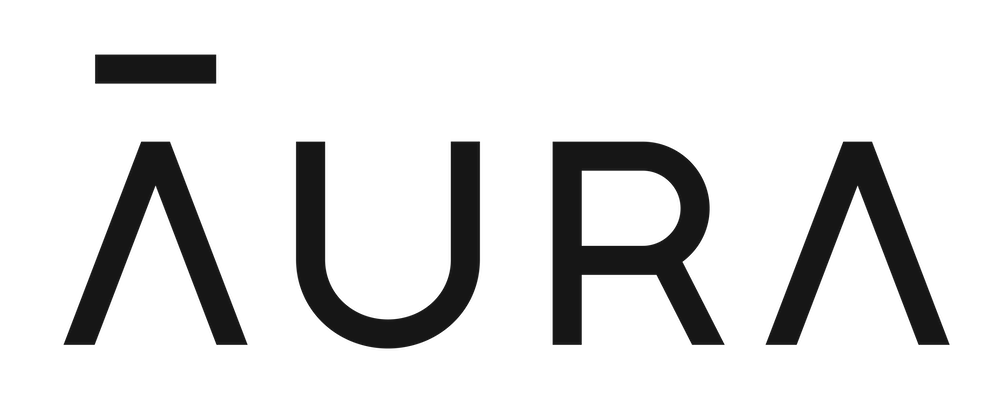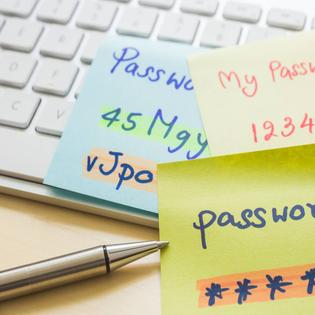Advertiser Disclosure
All About Cookies is an independent, advertising-supported website. Some of the offers that appear on this site are from third-party advertisers from which All About Cookies receives compensation. This compensation may impact how and where products appear on this site (including, for example, the order in which they appear).
All About Cookies does not include all financial or credit offers that might be available to consumers nor do we include all companies or all available products. Information is accurate as of the publishing date and has not been provided or endorsed by the advertiser.
Editorial Policy
The All About Cookies editorial team strives to provide accurate, in-depth information and reviews to help you, our reader, make online privacy decisions with confidence. Here's what you can expect from us:
- All About Cookies makes money when you click the links on our site to some of the products and offers that we mention. These partnerships do not influence our opinions or recommendations. Read more about how we make money.
- Partners are not able to review or request changes to our content except for compliance reasons.
- We aim to make sure everything on our site is up-to-date and accurate as of the publishing date, but we cannot guarantee we haven't missed something. It's your responsibility to double-check all information before making any decision. If you spot something that looks wrong, please let us know.
Facebook Marketplace, like the social media platform itself, has become a bustling hub of activity. With 1.1 billion reported visitors, it’s arguably one of the largest online resale commerce sites in the world. This is great news for furniture flippers, sustainability enthusiasts, or anyone looking for a deal. However, the amount of traffic is also a huge draw for online criminals.
By now we’re wary of Facebook ads and other third-party communication across the site, including the proprietary Facebook Marketplace, and it can be easy to fall for a fraudulent transaction.
Facebook Marketplace scammers are on both sides of the platform as fake sellers and fake buyers, along with those looking to steal your identity. So how can you tap into the benefits of Facebook Marketplace without being scammed? We'll show you how to protect yourself on Facebook Marketplace and the best identity theft protection, plus some other protective tools you could use.
-
Excellent identity theft protection service
-
Includes a password manager and VPN
-
Robust tools for children’s security
-
Provides VantageScore and not FICO score updates
Scams targeting buyers
Scams targeting sellers
Scams targeting both
Is Facebook Marketplace safe?
How to avoid Facebook Marketplace scams
What to do if you’re scammed on Facebook Marketplace
How to report a buyer scam
How to report a seller scam
Facebook Marketplace FAQs
Bottom line
18 most common Facebook Marketplace scams
Because of the nature of the platform, scams are targeted at both buyers and sellers. These can include scams to steal your products or services, get you to pay for fraudulent products or services, or even identity theft. Read on so you can identify the most common scams and avoid becoming a victim.
Scams targeting buyers
1. Fake giveaways
Have you received a message telling you about the new Macbook you just won? Maybe a link to a “survey” that will get you a gift card to a store you love? These are ways to gather your personal information or gain access to your device to install malware. Be cautious of anything that directs you outside of the Facebook platform.
Using antivirus software with anti-phishing protection adds another layer of protection against these scams. We recommend checking out Avast, TotalAV, and McAfee, which all include anti-phishing security features.
2. Bait-and-switch items
Fraudsters will advertise what you’re looking for at a great price. When you inquire about the product, it’s suddenly “unavailable” but a higher-priced product is offered as a replacement.
Similar to bait-and-switch items, non-delivery scams involve a seller who lists an item that they aren’t planning on actually shipping to buyers.
Instead of switching the item for something more expensive or lower quality at the last minute (as with bait-and-switch), non-delivery scams attempt to take payment without sending the item out. This allows the perpetrator to engage multiple buyers with a single item or sometimes no item to sell at all.
If the listing is local, a good way to avoid this type of scam is asking to pay for the item in person in a convenient public place. If the seller refuses, there is a good chance they are trying to dupe you.
If the item needs to be shipped, scammers often only accept non-secure or unusual payment methods such as wire transfers and gift cards — or have you pay by other means outside of Facebook Marketplace. Avoid using non-conventional means to purchase items on the Marketplace, and if you need to pay online, pay within Facebook Marketplace so Facebook has recourse to help you if fraud occurs.
3. Asking to be paid in gift cards
A common scam used by fraudsters is requesting to be paid in gift cards. They do this because gift card transactions — unlike with debit or credit cards — are quite difficult to trace.
Once you send payment, there is no way for the bank or card company to get that money back for you. There is no good reason for anyone to require payment by gift card, so the best way to avoid this scam is to never engage with listings that demand this type of payment.
4. Counterfeit items
Some sellers obscure the authenticity of an item in an attempt to sell you a cheap counterfeit. These listings usually look like a good deal for the buyer, so it's always best to do some research on the item to find any signs of authenticity and see how much it commonly sells for.
You can try to get the seller to send a new video of the item to show any proof of authenticity if possible. For example, designer bags come with a certificate of authenticity. Jewelry has model numbers and engravings or the company name stamped. Niche jewelry designers like Lionette stamp all their pieces with their company names.
Otherwise, always check the seller’s profile for reviews that might warn you about fraudulent activity. If the price seems too good to be true, there’s a good chance it is a counterfeit.
5. Faulty products
Faulty product scams come in two variations. The first is a fraudulent vendor who knowingly sells a malfunctioning product and then disappears after they receive payment.
The second is a fraudulent buyer who claims that the item they received is faulty and requests a refund. Instead of returning the so-called faulty item, the buyer holds onto it and insists that the product is in the mail, pressing the seller for an urgent refund with no intention of ever returning the product.
6. Rental scams
Rental scams involve fake listings for apartments, properties, boats, or power tools that ask shoppers for upfront payments or deposits. In the case of living spaces, some of these listings ask customers to fill out fake lease agreements or applications with the hope of attaining valuable personal information like social security numbers. Once the victim has submitted a deposit and/or application, the scammer disappears.
Facebook Marketplace isn’t the best platform for rental equipment or properties because of how rampant scams are. Stick with rental companies with a good reputation and a proven track record of good service.
Otherwise, beware of properties that are listed suspiciously below market value. Never submit payments of any kind or fill out any paperwork before confirming the legitimacy of the landlord and whatever it is they are renting out. This means inspecting the property, boat, or equipment in person to verify that it exists and that it is in the right condition.
If the seller will only accept payment methods that are untraceable — such as advance cash payments — this is a huge red flag that they are a scammer.
7. Car deposit/advance payment scams
Scammers use high-demand items like vehicles to persuade buyers to submit advance payments or deposits to reserve the item.
The seller commonly creates a false sense of urgency, claiming that they have multiple offers or that the item will sell quickly. Deposit and advance payment scams are also used with rental equipment, properties, valuable items, or collectibles.
Most if not all of these scams request payment methods that are untraceable such as cash advance payments and gift cards to try to close the deal outside of Facebook Marketplace and eliminate any connection to the seller. The end goal of the scammer is to collect the victim’s deposit or advance payment and disappear.
When purchasing a car on Facebook Marketplace, ask for the vehicle identification number (VIN) and check sites like CARFAX or AutoCheck for the vehicle. Verify the name of the seller and make sure they have a history.
Scams targeting sellers
8. Lost package claims
A lot of people will purchase something knowing there are protections in place to keep them from losing money on a scam. They’ll collect the item, then claim they never received it. Paying to have the package tracked and signed for upon receipt may be a little more expensive, but it’ll keep you from losing out on the entire sale.
9. Overpayment scams
It’s rare that an honest buyer will accidentally overpay a seller, so avoiding these kinds of scams is fairly straightforward.
The key is to simply never accept an overpayment. If someone tries to overpay you, decline the payment and ask them to submit the correct amount. If they press the issue for any reason, just move on from the sale.
Regarding refunds, always check that the payment has cleared before refunding someone.
10. Using stolen credit cards to pay
Buyers that use stolen credit cards are under a time crunch to complete transactions as quickly as possible before the card is reported stolen or the bank identifies suspicious activity.
Thus, it’s common for these buyers to appear pushy and even offer more than an item’s asking price just to complete the transaction. These criminals insist on closing the deal outside of Facebook’s checkout using payment apps like Venmo and Cash App or wire transfers knowing that these transactions are unprotected by Facebook.
11. Receiving a prepaid shipping label
If a buyer tries to supply you with a prepaid shipping label, they are almost certainly trying to scam you. The most common excuse they’ll use is that they have a preferred method for shipping. Never accept prepaid shipping labels from buyers and always get a tracking number whenever you ship something, so you can follow and verify the item’s delivery.
12. QR code scams
Since Facebook Marketplace provides users with a safe and legitimate way to pay for goods, it’s never necessary for QR codes to become part of a transaction.
You can always assume that any buyer (or seller) trying to get you to scan a QR code is trying to scam you. Avoid taking partial payments to hold items for buyers as some scammers will pretend to pay the difference to you through a fake QR code that is meant to steal your information or fool you into paying them money.
13. Immediate interest
Did you list your $200 shoes five minutes ago and now someone is contacting you telling you to email them so they can buy your shoes? That’s almost guaranteed to be a scam. The scammer will frequently ask you to contact them via email instead of communicating through the site.
If someone is immediately interested, communicate only through Facebook Messenger. If they provide a contact method outside of Messenger, you can report and block them.
Scams targeting both
14. Fake Facebook accounts
Fake Facebook accounts allow scammers to create listings, receive payments, and then disappear without fulfilling their side of the bargain.
Look out for accounts that are fairly new, have no profile picture, have very few friends, and have no Marketplace activity. More often than not these accounts are fake and you're not chatting with a real person.
15. Sending an item before payment is received
Sending an item before receiving payment puts all of the risk on the seller. If the buyer wants to test or view the product before buying, offer alternatives such as meeting in a safe and public place or having a video chat.
If the buyer reacts suspiciously or refuses, they are likely trying to scam you.
16. Asking for your phone number
A hacker can get into your account with your name and phone number by rerouting two-factor authentication to themselves. It’s best to stay within Messenger for all transactions and not offer up any private information.
Also, use a password manager to keep track of complex passwords so they’re harder for scammers to guess. The best password managers like NordPass and the one included with Aura also help you generate hard-to-crack passwords —and we highly recommend both.
Another version of this scam involves fraudulent buyers who first feign interest in a seller’s listing. They eventually ask for the seller’s phone number for a made-up reason such as to discuss the deal further.
Once they have the seller’s number, they use it to set up a Google Voice number. Google Voice then sends the seller a two-factor authentication (2FA) code for verification.
The buyer proceeds to trick the seller into giving them the code, allowing the buyer to use the newly created Google Voice account to commit further fraud.
17. Asking you to provide verification codes to prove your identity
The key to avoiding this kind of scam is to never give out your phone number or email address and always use the Facebook Messenger app to communicate with potential buyers or sellers.
Furthermore, never reveal verification codes that are sent to your phone or email address to anyone. These codes can be used to set up accounts under your number or email address and allow scammers to commit further fraud.
18. Requiring you to click a link to fill out more information
Scammers often try to trick users into clicking links that contain malware or lead a victim to a malicious website in order to steal their personal information.
These links are created to appear disarming, and scammers will try to make it seem necessary to click the link to proceed with a transaction. It's common for these kinds of phishing scams to offer some kind of giveaway or provide a “necessary” form to be filled out.
Is Facebook Marketplace safe?
Facebook Marketplace can be a safe and effective way to find goods or services you’ve been looking for in other markets. For people on a budget moving to a new city, it’s a way to furnish an entire apartment without breaking the bank. Furniture flippers and vintage collectors are also huge fans of the platform.
Meta, Facebook’s parent company, knows it attracts scammers along with legitimate Facebook users, which is why they have so much information available on safety. Verified badges on profiles are one way this online marketplace is battling fraud. Another is the shopping safety guide that outlines best practices. There you can find information about responsible commerce, scams, purchase protection, and how ratings work.
Ready to start buying and selling? The first step is reading through the responsibility guide. Follow this up with the purchase protections or seller protections pages for a sound foundation. This will set you up to be able to spot new scams and keep you from becoming a victim.
How do you know if someone is scamming you on Facebook Marketplace?
To keep yourself safe from scams you should approach all Facebook Marketplace transactions with skepticism. To know if someone is scamming you on Facebook:
- New profile: Be on the lookout for brand-new profiles with few or no profile pictures, as these are signs of dummy accounts commonly used to scam people.
- Deals that are too good to be true: Proceed cautiously with deals that seem too good to be true and buyers or sellers who pressure you to act quickly on a transaction.
- Asking for personal info: Beware of people who ask for personal information from you such as your phone number, and never click any links sent to you, as these can contain malware.
- Fake listing images: Scrutinize listing images as scammers will use stock photos or images they took off the internet to list an item that either doesn’t exist or is in poor condition.
- Overpayment or odd payment methods: Strict requests for strange payment methods — such as by gift card — and buyers who insist on overpaying or do so “accidentally” are red flags.
If you ever see any of these signs — or something else that seems suspicious — consider moving on.
How to avoid Facebook Marketplace scams
While getting scammed is always possible, there are plenty of ways to keep yourself safe while using Facebook Marketplace. The following reminders can act like a checklist for every transaction:
- Regularly review your bank and credit card statements.
- Avoid anything that seems too good to be true.
- Check the seller’s badges and reviews.
- Communicate strictly on Facebook Messenger.
- Use two-factor authentication with your Facebook page.
- Use a trusted payment method that protects you like cash, PayPal, or Facebook Checkout.
- Double-check the other person’s identity.
- Meet in a populated, well-lit space.
- Bring everything you need to make sure you’re getting a working product.
What to do if you’re scammed on Facebook Marketplace
Even if you’re diligent and careful, it’s still possible to be scammed. If you find yourself on the other end of a fraudulent transaction, there are steps you can take to mitigate the damage. Start by contacting your bank, filing a report with local law enforcement, and reporting the scam itself on Facebook.
How to report a buyer scam
- Open the item listing on your screen.
- Next to the buyer’s name, click see more.
- Click the ellipsis (the three dots).
- Click report buyer.
- Click scam, then follow the on-screen instructions to file the report.
How to report a seller scam
- Go to the listing you think is fraudulent.
- Click the name of the seller.
- Click the ellipsis (the three dots).
- Click report seller.
- Click scam, then follow the on-screen instructions to file the report.
After you file a report
After you report the scammer to Facebook Marketplace, it's a good time to take action to further protect your personal data and bank accounts.
- Review your credit reports: You can check your credit reports for free at least once a year. Look for any unfamiliar information that could be a sign of identity theft.
- Double-check your bank statements: Make sure scammers didn't use your credit or debit card to make fraudulent charges. If you do see a suspicious transaction, contact your bank.
- Sign up for identity theft protection: Even if scammers don't act right away, that doesn't mean your info wasn't compromised. An ID theft protection service helps you monitor your identity, credit reports, and bank accounts over the long term so you can quickly spot any issues and take immediate action. Some services even monitor your social media accounts as well — a perfect choice if you're worried your Facebook account was hacked.
3 best identity theft protection services
| Service |  Norton LifeLock |  Aura |
 Identity Guard |
| Individual monthly price | Starts at $7.50/mo for first yr | Starts at $12.00/mo | Starts at $6.67/mo |
| Family monthly price | Starts at $14.99/mo for first yr | Starts at $24.00/mo | Starts at $10.00/mo |
| ID theft insurance | Up to $3 million | Up to $5 million | Up to $1 million |
| Credit monitoring | |||
| 3-bureau credit reports | |||
| Details | Get LifeLock Read Our LifeLock Review |
Get Aura Read Our Aura Review |
Get Identity Guard Read Our Identity Guard Review |
Facebook Marketplace FAQs
How does Facebook Marketplace work?
In legitimate situations, a Facebook Marketplace seller lists a product or service for sale. A buyer then contacts the seller inquiring about the purchase. An agreed-upon price is reached between the two parties. The seller delivers the product or service and the buyer pays for that product or service.
Can you get scammed as a seller on Facebook Marketplace?
Yes, you can get scammed as a seller on Facebook Marketplace. There are people out there trying to trick you into fraudulent transactions through any means of payment or product scamming. Protect yourself and keep all the proof to report these scams.
How to contact Facebook for help?
Facebook has multiple pages set up to assist you if you think you’ve been scammed. Their reporting pages have all the information you’ll need.
What can a scammer do with your phone number on Facebook Marketplace?
Scammers use your phone number to set up a Google Voice account in order to use that account to commit fraudulent activities. Since Google Voice requires verification to set up an account, the scammer pretends they are sending you a verification code to verify that you are human. They then ask for the code and use it to complete the account setup.
Never give your phone number away on Facebook Marketplace for any reason. Use the Marketplace messenger to communicate with potential clients, as this creates a record of your conversation. Always be wary of anyone who asks for your phone number.
What’s the safest way to accept payment on Facebook Marketplace?
The safest way to accept payment on Facebook Marketplace is through the Facebook Marketplace app. This creates a paper trail for you as the seller in case the buyer’s payment doesn’t go through.
If anything else goes wrong, Facebook is able to mediate the dispute, since the history of the transaction exists in the app.
How do I verify a buyer on Facebook Marketplace?
Since there isn’t an effective way to verify all buyers on the Facebook Marketplace app, you’ll need to do a little digging yourself. Bogus or scam accounts tend to be newly created and have no profile picture and very few friends. The biggest red flag is an account with no buying or selling history.
Bottom line
Staying safe on social media might require a few extra steps, but they’re well worth it. Keeping within the guidelines of the community by only communicating through Messenger is a great start. Only accepting or paying with cash, PayPal, or Facebook Checkout can also protect you. Additionally, checking the length and validity of a seller or buyer’s account goes a long way.
With preparation and vigilance, you can effectively use a far-reaching tool like Facebook Marketplace without worrying about being scammed. Keep yourself from becoming a victim by following the guidelines above and by keeping your Facebook privacy settings locked down tight. We also recommend installing the best antivirus software and, if you're worried your data was stolen, signing up for an identity theft protection service.
By staying diligent, you can enjoy the commerce and convenience of the resale platform while also knowing your information is safe.
-
Excellent identity theft protection service
-
Includes a password manager and VPN
-
Robust tools for children’s security
-
Provides VantageScore and not FICO score updates





